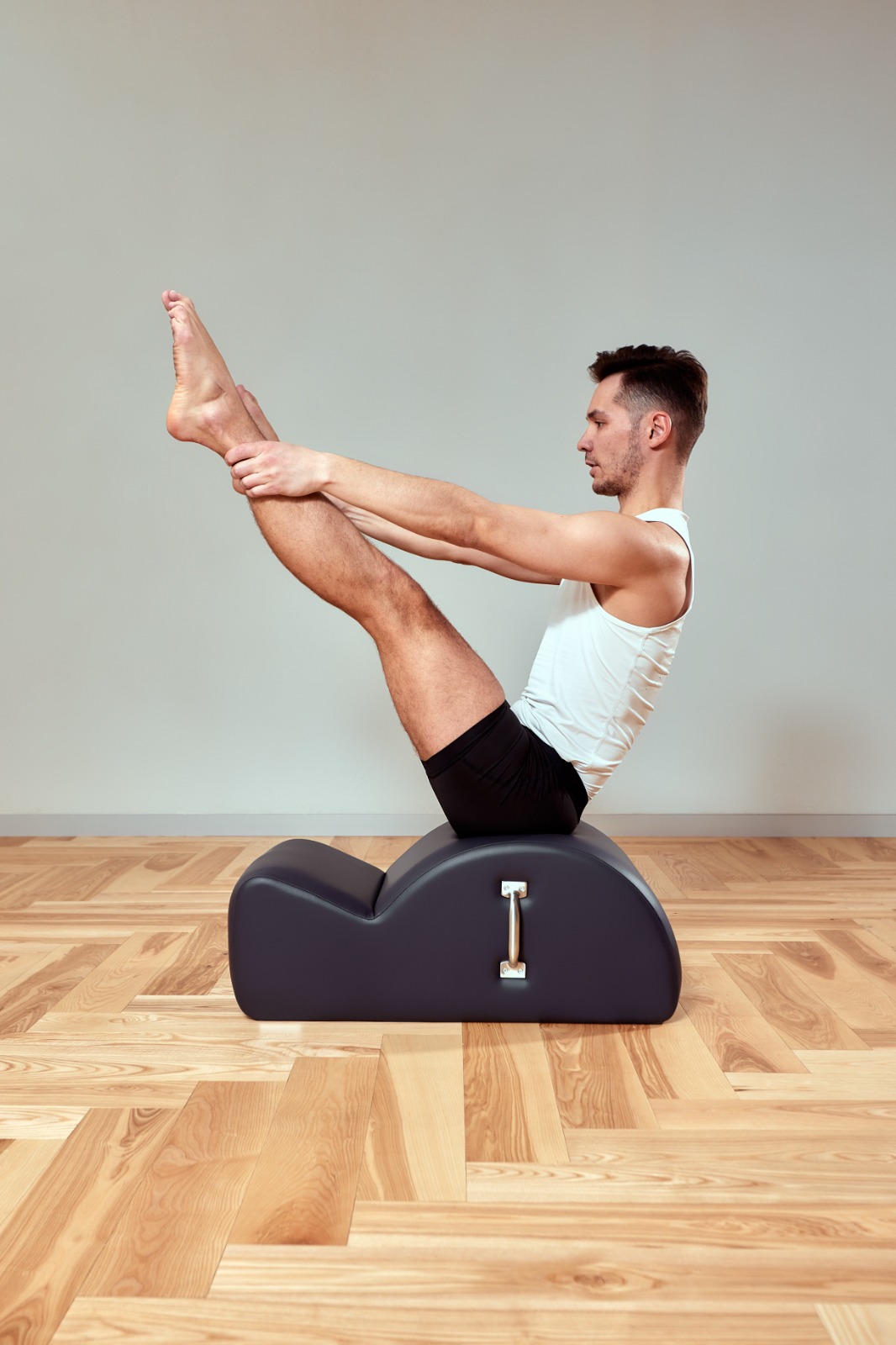Are You Earning Up to Your Potential?
Most personal trainers are undervaluing their time and skills. Our Personal trainer Revenue Calculator helps you find out what you should be making, and how to get there.
No guesswork. Just real numbers.
.jpg)

In the fast-paced fitness world, the drive to push ourselves further, faster, and harder is undeniable. Yet, often, we forget one essential component of a successful fitness journey: recovery. This blog is your comprehensive guide to why recovery is crucial and how to incorporate effective strategies into your fitness routine. Whether you're a fitness trainer or an enthusiast, discover the secrets of maximizing your progress and preventing burnout.
Why Recovery Matters in Your Workout Routine?

Recovery is the foundation of every successful fitness journey. It allows your body and mind to bounce back from the stress and strain of rigorous training. The risk of injuries, plateaus, and burnout increases significantly without proper recovery. Let's break down why recovery matters:
- Physical Restoration: Recovery allows the body to repair and rebuild after physical exertion, such as exercise or strenuous work. It helps improve muscle tissues, replenish energy stores, and reduce inflammation.
- Injury Prevention: Adequate recovery time reduces the risk of overuse injuries. Continuous stress on the body without proper recovery can lead to injuries and chronic conditions.
- Performance Improvement: Recovery is crucial for athletes and individuals seeking performance improvements. It helps optimize muscle growth, endurance, and strength, leading to better performance in sports and fitness activities.

- Mental Well-being: Recovery is not just about the body; it's also essential for mental health. Taking time to rest and relax can reduce stress, improve mood, and prevent burnout or mental exhaustion.
- Sleep Quality: Proper recovery includes getting enough sleep. Quality sleep is essential for cognitive function, memory consolidation, and emotional well-being.
- Immune System Support: Adequate recovery helps boost the immune system. When we rest, the body can allocate resources to defend against infections and illnesses.

- Hormonal Balance: Recovery is critical for maintaining hormonal balance. It can prevent hormone disruptions leading to mood swings, weight gain, and other health issues.
- Long-Term Sustainability: Consistent recovery practices can lead to a sustainable and long-lasting healthy lifestyle. Overworking the body without proper recovery can lead to burnout and the abandonment of healthy habits.
- Enhanced Creativity: Recovery time can stimulate creativity and problem-solving. Taking a break from constant work or exercise can give your mind the space to develop new ideas.
- Quality of Life: Ultimately, recovery contributes to a better quality of life. It allows you to enjoy life, pursue your passions, and engage in physical and mental activities with vitality and enthusiasm.
💪 Got an idea for a brand? Let's bring it to life.
Launch your own fitness app with FitBudd in minutes!

💪 Got your brand name? Let’s bring it to life.
Launch your own fitness app with FitBudd in minutes!


88% trainers worldwide gave us 5 stars
Transform your fitness business with the power of your branded app on iOS and Android.
Try for FREEHow Does the Recovery Process Work?

The recovery process encompasses critical physiological and psychological mechanisms after exercise. Physiologically, it involves repairing and rebuilding muscle fibers, replenishing energy stores, and reducing inflammation in the body. When you work out, you cause microscopic damage to your muscle fibers.
Recovery allows these damaged fibers to be repaired, and they become stronger and more resilient in the process. This muscle tissue repair and growth are the cornerstone of building greater muscle strength and achieving a more defined physique.
In addition to muscle repair, the recovery process also involves reducing inflammation. Intense exercise can lead to inflammation in the body, which can cause pain and discomfort.
Recovery is the body's natural way of reducing this inflammation, which is crucial for muscle building and joint health. It helps in preventing overtraining and workout-related injuries and maintains overall physical well-being.
Recovery is not just about the physical aspects but also the psychological benefits. It provides an opportunity for the mind to reset and rejuvenate. After a challenging workout, it's common for mental fatigue to set in. Recovery helps restore focus and concentration, increase motivation, and enhance mental well-being.

This mental rejuvenation is pivotal in maintaining the drive and enthusiasm necessary for a long-term commitment to fitness.
Understanding the intricacies of the recovery process is fundamental to optimizing your training and reaching your fitness goals.
It goes beyond just resting; it's about acknowledging the body's internal mechanisms that work tirelessly to make you stronger, healthier, and more successful in your fitness journey.
Indeed, here's an explanation of "Prioritize Recovery at All Stages of Training" broken into paragraphs:
Prioritize Recovery at All Stages of Training
To embark on a successful fitness journey, it's essential to prioritize recovery right from the beginning. Recovery shouldn't be considered an afterthought or an optional add-on to an exercise program; it should be an integral part of your overall training plan. This means incorporating recovery strategies at every stage of your fitness routine, from the first day of training to the peak of your performance.
Incorporating recovery into a workout routine means acknowledging its importance in building a solid foundation for your fitness journey. Whether a beginner or an experienced fitness enthusiast, your body requires time to adapt and repair after workouts.
This adaptation is essential for progressing to more challenging exercises and heavier weights. Therefore, dedicating time to recovery, even during the early stages of training, can help you prevent injuries, overtraining, and burnout.

As your fitness journey progresses, recovery becomes even more critical. Intense and advanced workouts strain your muscles, joints, and the central nervous system.
Prioritizing recovery means actively scheduling rest days each week and focusing on the quality of your rest, which includes getting adequate sleep, maintaining proper nutrition, and staying hydrated. This careful planning ensures you're prepared to tackle more demanding training as you advance your fitness journey.
Prioritizing recovery is not a one-size-fits-all approach. It's about tailoring your recovery plan to your specific needs and preferences. Whether you're a fitness trainer or an enthusiast, experimenting with different recovery techniques can help you discover what recovery routine works best for you.
This personalized approach can include massage, stretching, meditation, or even yoga. Listening to your body is crucial. If you feel fatigued, giving yourself the extra time to rest, recover, recuperate, and return stronger is essential.
Effective Recovery Strategies
Now that you understand why recovery is vital let's explore actionable strategies to optimize recovery and supercharge your fitness journey.
1. Quality Sleep

- Get enough high-quality sleep.
- Aim for 7-9 hours of uninterrupted sleep.
- Sleep is your body's natural recovery mechanism. Aim for 7-9 hours of uninterrupted sleep each night to allow your body to repair and rejuvenate.
2. Nutrition

- Fuel your body with the proper nutrients.
- Consume a balanced diet rich in protein, carbohydrates, and healthy fats.
- What you eat plays a significant role in recovery. A well-balanced diet ensures your body gets the necessary nutrients for muscle repair and overall recovery.
3. Active Recovery of Muscle Tissue
- Engage in light, active recovery exercises.
- Incorporate activities like walking, swimming, or yoga on rest days.
- Active recovery promotes blood flow, reducing muscle soreness and aiding in recovery.
4. Stretching and Mobility
- Prioritize stretching and mobility exercises.
- Incorporate dynamic and static stretching into your routine.
- Stretching improves flexibility and range of motion, preventing injuries and enhancing recovery.
5. Hydration

- Stay hydrated.
- Drink enough water throughout the day to maintain optimal hydration.
- Proper hydration is essential for muscle function, digestion, and holistic health. It aids in flushing out toxins and enhancing recovery.
Read our blog on Guide to Staying Hydrated During Workouts!
6. Recovery Tools
- Consider using recovery tools.
- Explore tools like foam rollers, massage guns, and compression garments.
- Recovery tools can target specific muscle groups, improving blood flow and reducing soreness.
7. Mindfulness and Stress Management
- Practice mindfulness and stress management techniques.
- Try meditation, deep breathing, or gentle yoga to reduce stress and improve mental recovery.
- A calm mind is crucial for overall well-being and recovery. Incorporate mindfulness techniques to manage stress.
Make Your Recovery Work for You
- Tailor your recovery strategies to your unique needs and preferences.
- Experiment with recovery techniques, from massage to meditation, to find what works best.
- Listen to your body and adjust your recovery plan accordingly. If you feel fatigued, give yourself extra time to rest.
Conclusion
In the fitness world, recovery is the secret sauce that supercharges your journey. Whether you're a fitness trainer or an enthusiast, these effective recovery strategies will make a difference. Prioritize recovery, and you'll reach your fitness goals faster and enjoy the journey. Remember, a well-rested body and mind are the keys to a successful and sustainable fitness adventure.
Frequently Asked Questions

Creative Fitness Challenges Ebook
Discover exciting challenges to boost your workouts and keep your fitness journey thrilling.
Download Now
Templates
These functional templates have the power to make any fitness trainer's life easier.
Subscribe To
Our Blog

































